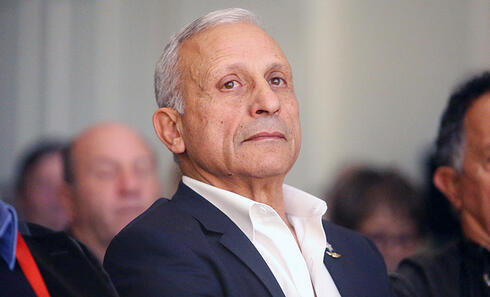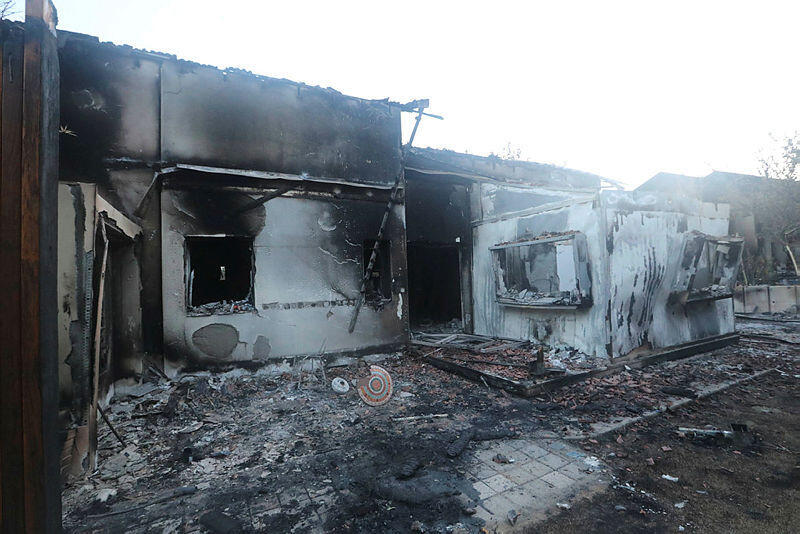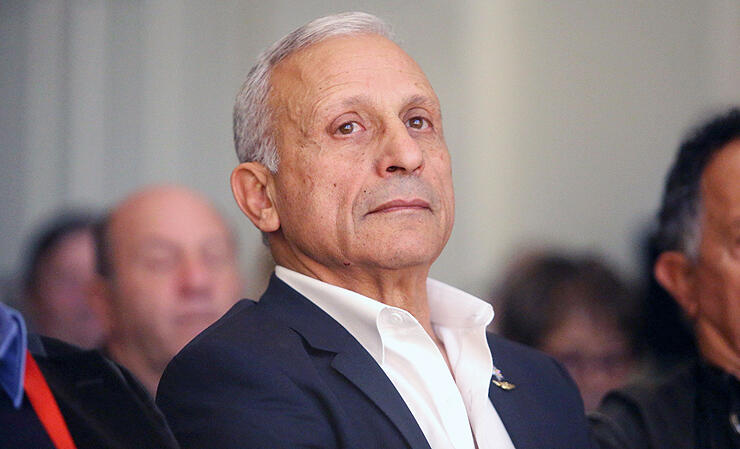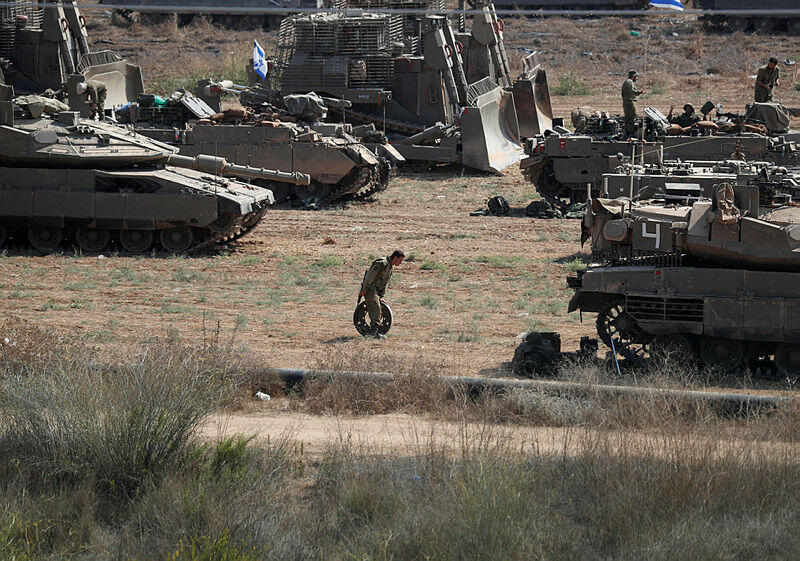
ISRAEL AT WAR
"If Hamas appears successful, it indicates to other terrorists in the world that they can get away with it too"
Former Israeli Air Force Commander Eitan Ben Eliahu: "Hamas exposed themselves to the world - they’ve shown that they are no different from ISIS"
“Hamas has exposed themselves to the world - they’ve shown that they are no different than ISIS,” Former Israeli Air force Commander Eitan Ben Eliahu says. “The things that we’ve seen here, we’ve only seen in places like Rwanda after the genocide. There is no alternative but to destroy them.”
The significance of eradicating Hamas, Ben Eliahu told CTech, is as imperative for Israeli and Jewish security, as it is for the entire world in its fight against terrorism. “There are terrorist organizations around the world who have watched this unfold and seek to do the same,” he says, not just in Israel and not just to Jews, but to whoever opposes them.
“If Hamas appears to be successful, it will indicate to such people that they can get away with it too.”
As we enter the second week of Israel’s war with Hamas, there are few people who can provide a better insight into what we can expect in the days to come than the former commander of the Israeli Air Force, Eitan Ben Eliahu. Before serving as the IAF commander from 1996-2000, he served as a fighter pilot including during the Yom Kippur War where he led a squadron of phantoms to shoot down Egyptian fighter jets. In 1981 he flew during Operation Opera which resulted in the bombing of Iraq’s Osirak nuclear reactor.
Ben Eliahu is now adamant that Israel has been left with no alternative but to destroy Hamas. “The target of this operation is to dismantle all of [Hamas’] infrastructure to build, prepare or launch military operations and to destroy the capability of Hamas to govern Gaza,” he says. “The plan is to clear the way with an aerial attack combined with boots on the ground, but it’s impossible to know how long this will take since things change every hour.”
The unprecedented scope and brutality of Hamas’ surprise attack on October 7th has now left over 1,300 Israelis dead, 150 hostages and a shattered nation. There is a sense that the Israeli response will be - and, indeed, is already - unlike any other retaliation to Hamas in previous years.
“In previous operations, there were bilateral efforts to reach a ceasefire - in this case, it’s one-sided. There is no intention on our side to negotiate. We will decide when it is finished,” he says.
However, this is complicated by one of the most gruesome aspects of this war - the kidnapping of about 150 hostages, mostly civilians, including women and children. “Our biggest dilemma is the hostages, but we aren't willing to negotiate unless there is a ceasefire (note, as we speak Hamas has not stopped firing rockets at Israeli cities),” says Ben Eliahu. He notes that there are indirect negotiations involving other states due to the high number of hostages who possess American, European and other nationalities.
3 View gallery


A destroyed and burned home from Hamas' attack on Kibbutz Be'eri.
(Credit: Gadi Kablo)
The day after
Hamas’ brutal attack has resulted in a unified and swift resolve to destroy them completely, something that was always absent in previous operations. However, even if Israel succeeds in eradicating Hamas, what the day after looks like remains unknown and questions regarding long-term goals and strategy for Gaza seem to be anyone’s guess.
“Let’s assume that we entirely remove Hamas,” says Ben Eliahu, “then there will be no government in Gaza, there will be two million people condensed in the southern area [of Gaza]. We could then say that we are no longer responsible for ruling Gaza. The international community will have to take care of them. Energy, water, food - everything that we were responsible for, including the open flow between Gaza and Israel for workers who came in and out every day, which will never happen again - all of this responsibility will be transferred to another entity.”
One of the most important actors in this regard is Egypt, the only other country that shares a border with Gaza, and like Israel, has imposed a blockade since Hamas came to power in 2007. Egypt is currently refusing to cooperate with Israel and the U.N. to open a humanitarian corridor for Palestinian civilians from Gaza because they do not want to risk granting entry to Hamas.
While many are calling for pressure to be put on the Egyptians to do so, Ben Eliahu is skeptical of their cooperation. “We know that the Egyptians don’t want to take any responsibility, but the situation is so volatile that it is impossible to make any predictions.”
Another concern is the mounting tensions along the Lebanese border with Hezbollah, with multiple exchanges of fire on the border. While Ben Eliahu says that he doesn’t foresee a major escalation, he notes that this could change at any moment.
“Tensions are very high and [Hezbollah] wants to show that they haven’t abandoned the Palestinians in Gaza. They want to demonstrate that they have done something,” he says, though ideally without becoming embroiled in a full-scale war, he adds. “If, however, someone makes a mistake, say, an organization in [Lebanon] launches a missile that causes casualties here, we will have to retaliate.”
"The widest front"
For Ben Eliahu, one of Israel’s biggest challenges, and in some ways “the widest front,” is combating false propaganda pervading social media and wider international media. “It’s a big challenge and you cannot leave it to one government office. It has to be a joint venture for many organizations in Israel, the Jewish community and internationally. It’s a very large front to fight and no one organization can deal with it alone.”
He adds that it is imperative that we use every tool at our disposal to combat the spread of Hamas propaganda. “We have to protest, we have to speak to the media, if there are tech tools available, we have to use them, so that there will be at least a balance between the fake news and the reality on the ground.”
The dominant narrative presented, as a cursory glance on any social media platform reveals, as well as among international media, is that Israel is indiscriminately bombing civilian areas in order to collectively punish the Palestinian people. This is despite the fact that Israel is going to great lengths, even now, to avoid civilian casualties, and betraying a tactical advantage to do so, by warning Palestinian civilians of aerial attacks in advance.
“We know that if we give messages to warn them before we bomb the north [of Gaza], there will be Hamas operatives who go south [with civilians],” says Ben Eliahu. “We do this despite what was done to us, because we aren’t trying to kill innocent people - we do our utmost to avoid it. But, we know there will be casualties; this is a war zone in a very small, dense area.”















